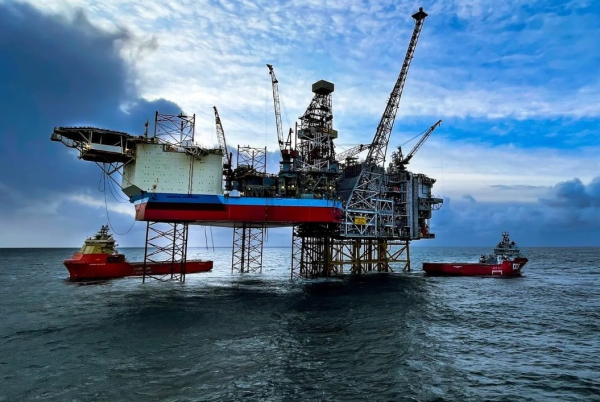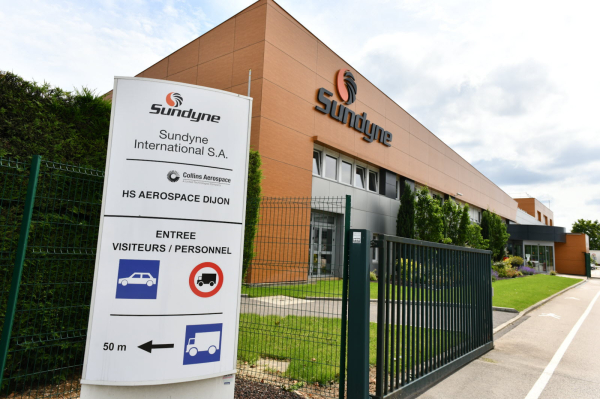
Dear readers,
Welcome to EU Politics Decoded where Benjamin Fox and Eleonora Vasques bring you a round-up of the latest political news in Europe and beyond every Thursday.
In this edition, we look at a week in which the EU emerged as the largest donor of reconstruction aid to Turkey and Syria following last month’s devastating earthquake, while also committing more money to prevent migration from the region.
Editor’s Take: The carrot and the stick
When a major catastrophic event occurs, it is impossible to ignore it. Particularly when it is near EU borders. Something has to be done, the situation has to be managed in one way or another.
The devastating earthquake in Turkey and Syria in early February caused roughly 56,000 deaths, with many thousands more displaced. It arrived in an already precarious and sensitive area already savaged by the war in Syria, the persecution of Kurds by the Turkish government and the 2016 ‘cash for migrants’ agreement between the EU and Turkey designed to contain migratory flows.
After the earthquake on 6 February, leaders gathering at the EU Summit on 9-10 February expressed their condolences to the people affected. The question is, what happens now?
The international donor conference on Monday (20 March) raised $8 billion to help reconstruction. Just over $7 billion for Turkey and $950 million for Syria. However, these sums will only scratch the surface as, according to the UN Development Programme (UNDP), the cost of the damage is estimated at $104 billion.
Yet while offering donations (or carrots) with one hand – the EU contributed €1 billion, making it the largest single donor – a stick is held in the other.
A letter sent by European Commission President Ursula Von der Leyen to leaders ahead of the EU Summit, which starts on Thursday (23 March), stated that more than €600 million had been made available to “support member states with border control and technological equipment” that will be used first at the border between Bulgaria and Turkey, while an additional €220 million has been allocated to Turkey “to prevent irregular migration flows at the Eastern borders”.
In other words, while offering money for reconstruction, the EU also wants to tighten control of its borders to prevent a new wave of migrants that are likely to try to cross the border due to the economic damage caused by the earthquake.
Who’s electioneering?
Too close to call. Electioneering is afoot in Finland and Bulgaria ahead of polls on 2 April.
The fifth election in Bulgaria in two years appears unlikely to break the political deadlock that has resulted in a series of caretaker governments. Former Prime Minister Boyko Borissov’s Gerb party are locked on around 25% with the anti-corruption We Continue the Change according to opinion polls, suggesting that the latest elections will do little to unblock the impasse.
A similarly close race is expected in Finland, where the moderate conservative National Coalition Party (NCP), right-wing populist Finns Party and Prime Minister Sanna Marin’s Social Democrats poll around 20%.
Capitals-in-brief
Sunak ties the Windsor knot. UK lawmakers passed Prime Minister Rishi Sunak’s reforms to the Northern Ireland protocol on Wednesday, though former premiers Boris Johnson and Liz Truss and the Democratic Unionist party in Northern Ireland were among the 29 MPs to vote against his deal.
Three-horse race. With just over a week to go until the Finnish elections, opinion polls are forecasting a razor-tight race between the National Coalition Party (NCP), the Finns Party and Prime Minister Sanna Marin’s Social Democrats, though analysts believe the populist Finns Party is the most likely to top the poll.
Rival from the left. Spanish Labour Minister Yolanda Díaz, a member of Unidas Podemos, has said she will announce at an event in Madrid on 2 April whether she will join the prime ministerial race as a candidate for the new left-wing electoral platform Sumar ahead of the December general elections.
State of fragile confidence. Two no-confidence votes aimed at toppling French Prime Minister Elisabeth Borne’s government were rejected on Monday (20 March), but the political crisis engulfing the government following last week’s decision to force through controversial pension reforms continues.
Combustible energy. A row between France and Germany fired by differences over nuclear energy and combustion engines threatens to spill over to the EU leaders’ summit in Brussels, which starts today.
Inside the institutions
MEPs take tough line on asylum application rules. Asylum seekers arriving in the EU will be required to apply for asylum in the country they arrive in, according to a leaked European Parliament document on the Pact on Migration and Asylum, obtained by EURACTIV.
Commission blows the whistle on Prague. The European Commission is suing the Czech government for not introducing rules to protect whistleblowers, a spokesman for the Court of Justice of the EU has confirmed, breaching the requirement to put the EU Whistleblowers Directive into their respective national laws by the end of 2021.
No more Mercosur. A group of EU ministers spoke out against reviving the EU-Mercosur trade deal with South American states at a meeting of agriculture ministers earlier this week, citing concerns about climate, environmental, animal welfare and social standards.
Crimes against the environment. MEPs on the European Parliament’s legal affairs committee unanimously voted in favour of stricter sanctions for those guilty of environmental crimes, including jail terms and fines reaching up to 10% of a company’s global turnover.
What we are reading
- In Unherd, former Greek finance minister Yanis Varoufakis criticises the ‘sordid’ deal to partially return the Parthernon Marbles to Athens.
- After Boris Johnson’s blustering performance before the UK parliament committee investigating whether he misled lawmakers about lockdown-breaking gatherings during the COVID pandemic, the Guardian’s Martin Kettle says the winner is Rishi Sunak.
- The COVID-19 pandemic is the real cause of the new crisis facing western banks, argues James Surowiecki in the Atlantic.
The next week in politics
- After this week’s EU summit, the spotlight next week will return to the European Parliament which holds a two day plenary session. On the agenda will be a debate on the European Commission’s annual Rule of Law report and legislation on equal pay for equal work or work of equal value between men and women.
Thanks for reading. If you’d like to contact us for leaks, tips or comments, drop us a line at [email protected] / [email protected] or contact us on Twitter: @EleonorasVasques & @benfox83
[Edited by Alice Taylor]
Source: euractiv.com



